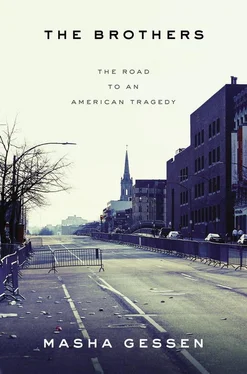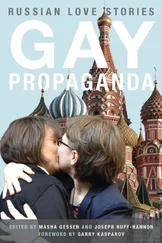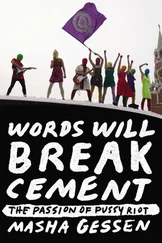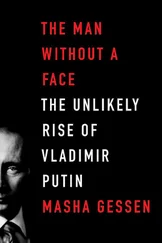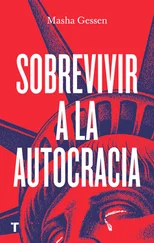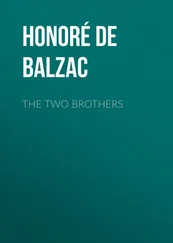Luis’s wife had woken him on the Friday morning after the bombing. She shook him, that is, until he was awake. Then she tried to say something, but words refused to form. She pointed at the television and said, “Look at the names.” There were the same pictures the couple had seen on the screen the evening before, but now the suspects were identified. Luis had not recognized Tamerlan earlier because, frankly, the guy on television did not look like Tamerlan. “The Tamerlan I knew never wore a hat—his hair was far too good for that. He never wore sunglasses: girls loved his eyes. He was never clean-shaven, he always had a five-o’clock shadow going unless he had to shave for boxing. He was never stooped. The Tamerlan I knew was tall, he stood proud, he was a beautiful man.” The man in the photos looked ordinary, even dumpy; Tamerlan and Luis had always been the opposite of that.
They had become friends at Rindge and Latin because they both shadowed a tight-knit group of ESL girls: Tamerlan was keeping watch over Bella, and Luis was trailing his girlfriend, Bella’s best friend, who was Venezuelan. Now this girl, who had become Luis’s wife, was pointing at the television set while Luis “felt like I was floating, like I was pulled out of my own body.”
Then CNN called, and Luis became a star of its Boston bombing show. He did not know much—he realized how little Tamerlan had disclosed whenever they had run into each other in the years after graduating from high school—but compared with people who had been talking into microphones before him, Luis was an expert. He debunked the theory that the brothers “had been brought up to be terrorists,” as he had already heard it put on the air. He stressed that they had been living in Cambridge for a decade. He mentioned that he had often seen Tamerlan in the library studying.
After high school their paths had been fairly similar. Both got married. Both became fathers: Luis’s first son was born when he was nineteen. Luis had dropped out of the University of Massachusetts Boston as well as Bunker Hill. Both of them had been staring at hard and hopeless lives as working-class young fathers in an overpriced American city where they had been led to believe they could lead lives of meaning. About a month before the bombing, Luis had announced his candidacy for the Cambridge city council, the longest shot on a long list. And now he was on national television. He looked great. Strangers on Twitter began tagging CNN with calls for the network to hire him as an on-air personality. When it was all over, Luis applied to the competitive journalism department at Emerson College, and, with an over-the-top recommendation from CNN, he was admitted (he still lost his city council race). The college was not far from the courthouse, so Luis discovered the peculiar pleasure of spending some of his afternoons watching the interminable process of jury selection.
The week I met with Luis, a federal appeals court had heard the defense argue—as it had repeatedly in written motions—that the trial should be moved from Boston. Between the saturation publicity and what she called “the six degrees of connection,” argued Judith Mizner, the public defender’s appellate chief, justice in Massachusetts could not have the necessary “appearance of justice.”
It was not a large state, and the Boston Marathon was a very large event in it: one after another, potential jurors had said that they knew someone on the witness list or someone who had been at the finish line or a first responder, or they worked for a company that sponsored the marathon or a hospital that treated some of the victims. As if to underscore the effects of saturation publicity, one of the judges had asked a prosecutor about “the video of the defendant placing a backpack at the site of the explosion.” This was a video that, if it existed, had never been shown to the public—a fact the prosecutor failed to point out. The following day, one of the prospective jurors also made reference to having seen this purported video.
To my surprise, Luis, who seemed to have perfected the political art of speaking with detachment about anything, waxed passionate against moving the trial. “It’s an attempt to strip us of our dignity all over again,” he said. “If someone has the audacity to hurt our community, they should have the cojones to face us back and to explain.” Did he really think he would get an explanation from Jahar, who was not likely even to testify at his own trial? Luis admitted that he did not. After a few minutes, we circled back to April 2013. The afternoon of the marathon, Luis had been planning to go to the finish line with his family. He had not much wanted to, so they had been slow leaving the apartment. Luis had stepped back in to turn off the television—and on it, had seen the explosions.
I expected him to say that if he had been less reluctant to attend the marathon, he or any other member of his family might have died. But instead he said, “If I’d made it to the finish line, he would have seen me with my family. Would he have stopped? I just keep thinking of that small tiny chance that the whole thing could have been prevented just by being there.”
On Friday evening, four days after the bombing, Luis was standing at CNN’s temporary set in Boston’s Copley Square talking with Anderson Cooper. He heard a producer say that the younger brother had just been captured, and he thought, “They are going to drop me now.” Then he heard Anderson Cooper say that Jahar was in custody—and Luis was still there, at the very center of things, on the news. The crowd around them began chanting, “U-S-A! U-S-A!” What Luis really wanted to say was, “We got him, I’m going to Disney World”—he felt that much the winner at the moment. He might have failed, four days earlier, to prevent a tragedy by his mere presence, but now, by his mere presence, he had become intimately involved with bringing evil to justice. He did not give voice to any of that, but instead, with suitable grandeur, he did what Anderson Cooper had not done: he made a sweeping motion to include the chanting crowd in the shot.
This might have been what he had anticipated that morning, when he felt himself floating, like he had been pulled out of his body: his own moment of glory. And this was not only his moment of glory but, in the fervor of all those chanting people, the glory of his time, his place, his country, the vastness of all that it stood for, against the vastness of all that threatened it. “The one thing I hold dear and I cherish,” Luis told me on a frozen afternoon in Boston nearly two years later, “is the chants ‘U-S-A!’ flooding the airwaves—and I forever got to be a part of that moment.” No wonder he did not want to let it go.
Every nonfiction book is difficult in its own way. The difficulty with reporting this book was fear. People were afraid to talk to me because they had been questioned harshly by the FBI, because they believed they were in personal danger, because they feared bringing trouble to those they cared about, and because they had been disappointed by seeing their words quoted in simplistic, sensationalist, and misleading reports. I am grateful to those who placed their trust in my project in spite of these deterrents. This includes several people whose help was invaluable but who have asked not to be named in this book or to be acknowledged as sources.
In addition to them, and to those whose names appear in the book, I am thankful to the people who helped me grasp the context of the events I was describing.
In and about Dagestan: sociologist Alexei Levinson, anthropologist and my former colleague Konstantin Kazenin, the brave and inventive Dagestani journalist Zakir Magomedov, and especially Grigory Shvedov, human rights activist and editor of kavkaz-uzel.ru. Asya Tsaturyan and Nikita Bezrukov were my Moscow hosts extraordinaire: I got a room of my own and a set of Dagestan connections.
Читать дальше
